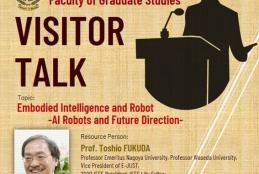Dr. Hiran Chathuranga Appointed as Scientific Editor
Dr. Hiran Chathuranga from the Department of Chemical and Process Engineering was appointed as a Scientific Editor (External) for the Next Chemical Engineering Journal and the Next Bioengineering Journal in November 2025. These peer-reviewed, open-access journals publish cutting-edge research in the fields of Chemical Engineering and Bioengineering. They are part of the Next family, a suite of multidisciplinary open-access journals from Elsevier dedicated to advancing scientific knowledge across diverse disciplines.


